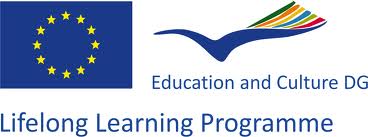The Jean Monnet Chair at Collegium Civitas
‘The European Union in International Relations’
Dr Kerry Longhurst is Jean Monnet Professor at Collegium Civitas and is in charge of the Chair’s many activities. The Chair is funded by the European Union through the Jean Monnet Action and has as its main goal the stimulation of critical debate and thinking about contemporary issues to do with the European Union’s role in the world. In addition, the Chair provides a focal point for broader EU / European activities at Collegium Civitas and for cooperation with other bodies and organisations. The Jean Monnet Chair is involved in bothteaching, debating and research activities:
TEACHING
- Europe in the Age of Multipolarity (semester one)
- Trade, Aid and Partnership
– the External Aspects of European Integration (semester one) - European Foreign and Security Policies (semester two)
- Shaping the Regional Milieu
– Enlargement and Neighbourhood Policy (semester two)
Teaching and assessment methods for the modules within the Jean Monnet Chair provide students with unique opportunities not just to learn about the subject, but also to take part in various activities which will strengthen their soft and transferrable skills. In 2013-2014 students on Dr Longhurst’s modules:
- Prepared 10 minute professional-standard podcasts.
- Took part in Oxford Union-style debates, based on the following motions – ‘Turkey does not have a Place in Europe’ and ‘Russia should have a say in the futures of East European States’. Students worked in groups to formulate arguments in favour or against the motion, which were then debated in a formal structured and chaired debate carried out under the rules of the Oxford Debating Society.
- Prepared presentations in teams on national perspectives on foreign and security policy, and were then quizzed in class to create a competitive environment based on peer review.
- Took part in an optional Summer School on Eastern Europe.
DEBATING
Each year the Jean Monnet Chair hosts a Public Round Table debate with speakers from the worlds of research and policy. In January 2014 the Round Table focused on the ‘EU and the Eastern Neighbours – What Next?’ Speakers were Erik Marmei (Estonia’s Ambassador to Poland), Yevgen Vorobiov (Polish Institute of International Relations) and Anais Marin (Finnish Institute of International Affairs).
Twice a year Collegium Civitas students take part in live Skype-debates with students from Moldova, Slovakia, The Czech Republic and Hungary. The debate, which is co-funded by the International Visegrad Fund provides an interactive platform for students from all five countries to discuss issues such as EU integration and enlargement.
RESEARCH
2014 saw research focus on developments in the post-Soviet space, with an emphasis upon understanding the contending approaches of the EU and Russia towards the ‘Common Neighbourhood’. This research project was carried out in connection with a grant from the EEA/Norway Grant scheme ‘Mapping Polish and Norwegian Perspectives on Regional Integration in the post-Soviet Area’.
www.facebook.com/jeanmonnetcivitas
www.eacea.ec.europa.eu/llp/jean_monnet
The inaugural Round Table of the Jean Monnet Chair took place on 17 January 2014
with a debate on the Eastern Partnership after the Vilnius Summit.
The second Round Table will be on 12 January 2015 on EU Foreign Policy
– further information will be available soon.
The programme takes the name of Jean Monnet (1888-1979), who was one of the architects of the European Union.
The inaugural Round Table of the Jean Monnet Chair took place on 17 January 2014 with a debate on the Eastern Partnership after the Vilnius Summit – The European Union and Eastern Europe in 2014 – What Next?
The past year has seen relations between the EU and its Eastern Neighbours evolve in diverse ways. Whilst the Eastern Partnership Vilnius Summit in 2013 demonstrated that significant progress had been achieved across a number of important spheres, such as trade and visas, especially with such countries as Moldova and Georgia, these advances were to a large degree overshadowed by negative shifts in EU-Ukraine relations. Meanwhile, Russia’s Eurasian Union project is growing in significance and is proving to be too attractive for some Eastern European countries to simply ignore. What will 2014 bring? What is the forecast for Ukraine? Can we anticipate that the positive trend in EU-Georgia and EU-Moldova relations will continue? What about Belarus, should the EU recalibrate its policies towards Europe’s ‘last dictatorship’? Finally, is the EU fit for the job and what priorities should Brussels and the EU member states be pursuing in Eastern Europe, a region which seems to be ever more competitive and differentiated.
Speakers:
His Excellency Eerik Marmei (Ambassador of Estonia to Poland)
Lali Lomsadze (Deputy Head of Mission of the Embassy of Georgia)
Kerry Longhurst (Jean Monnet Chair, Collegium Civitas)
Anais Marin (The Finnish Institution of International Affairs)
Ievgen Vorobiov (Polish Institute of International Affairs)


